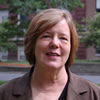WHAT SHOULD THE COMMON READING FOR NEW STUDENTS DO?

Mayo Bullock - Director, Educational Enhancement Programs at Case Western Reserve University |
 Mano Singham, Ph.D. - University Center for Innovation in Teaching and Education at Case Western Reserve University |
Friday November 13, 2009
12:30-1:30 p.m.
Crawford Hall - Room 9
Inamori Center
Case Western Reserve University
Dear Colleagues,
For the past eight years, new undergraduate students have been given a common reading assignment during the summer. The assigned book then serves as a basis for programs, such as an essay contest, and optional discussions beginning at orientation and continuing through Fall semester.
It should be no surprise that, over the years, I have heard, and maybe done, some grousing about the book choices. (For a list of the common reading books, from 2002 through 2009, please see: http://studentaffairs.case.edu/orientation/reading/previous.html ). But the choice of books ought to be related to the purpose of the program. So what is the purpose of the common reading program?
One view says students should encounter classic, timeless works. Another says that students should be able to follow up on the reading by meeting or hearing from the author – which rather forecloses Thucydides. Is the common reading supposed to encourage a particular sort of reflection? Help develop a particular kind of world view or understanding? Any goal for how it would affect participants could seem biased – but if no particular effect is desired, what standards could be used to choose each year’s work?
This Friday’s Public Affairs discussion will address the intriguing question of what, exactly, a common reading – our common reading – is supposed to do. We’ll be joined by two leaders of the process that selects the common reading and designs programming around it. The issues at stake range from what might be most attractive to students, to the purpose of a college education. So please join us to contribute your thoughts.
As usual, we will gather in Room 9 of the Inamori International Center for Ethics and Excellence, on the lower level of Crawford Hall, for free cookies, beverages, and brown bag lunch.
Best regards,
Joe White
About Our Guests
Mayo Bullock is Director of Educational Enhancement Programs for Case Western Reserve University. Those programs include undergraduate orientation, and so she has overseen the Common Reading selection since its inception in 2002 and has chaired the Selection Committee since it was first convened in 2003. The Selection Committee is composed of faculty, administrators, and students and selects a book each year as the assigned summer reading for new undergraduate students. A copy of the selected book is given to students during the summer, discussions begin during Welcome Days, and, with one exception, the author appears on campus, ideally as the University Convocation speaker. Ms. Bulloch holds a bachelor’s degree (American Civilization) from Brown University and a master’s (Education) from Case Western Reserve University. She has worked at CWRU for over 25 years.
Mano Singham is a theoretical physicist and is currently Director of UCITE (University Center for Innovation in Teaching and Education) at Case Western Reserve University. He is the author of three books: God vs. Darwin: The War Between Evolution and Creationism in the Classroom (2009), The Achievement Gap in US education: Canaries in the Mine (2005), and Quest for Truth: Scientific Progress and Religious Beliefs (2000).
Friday Lunch Upcoming Topics and Speakers:
November 20: Chesapeake Bay and the Need for Dark Green Environmentalism. With Howard R. Ernst, Associate Professor of Political Science, U.S. Naval Academy
November 27: Thanksgiving Break
December 4: What the Health Care
Reform Legislation Will Do, or Why Health Care Reform Failed, or Health Care
Reform: What Next? or All of the Above. With Joe White, Professor of
Political Science
The Friday Lunch discussions are held on the lower (ground) level of
Crawford Hall. Visitors with mobility issues may find it easiest to take advantage of special arrangements we have made. On most Fridays, a few parking spaces in the V.I.P. lot in between Crawford Hall and Amasa Stone Chapel are held for participants in the lunch discussion.
Visitors then can avoid walking up the hill to the first floor of Crawford by entering the building on the ground level, through the garage area under the building. The further door on the left in that garage will be left unlocked during the period before the Friday lunch. On occasion, parking will be unavailable because of other university events.
For more information about these and other Center for Policy Studies programs,
please see http://policy.case.edu.

